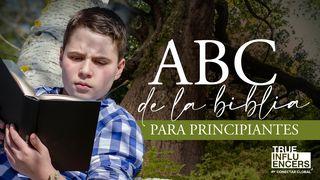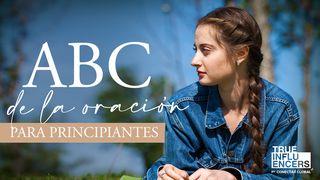Are You Really Ok? Muestra

You are a creature of habit. You come to the table with patterns in what you feel, how you think, and what you do. In fact, research shows us that it’s not necessarily what you want that makes you do the things you do; it’s the strength of your habits. The more you do something, the more likely you are to do it again. Even your intentions take a backseat to your patterns. Even if you want to do something differently, what ends up winning, in the end, is what you practice regularly. Patterns have a tendency to trump intentions.
Take, for instance, how you fold your hands together. Take a second to fold your hands. Which thumb is on top? Your right thumb, or left thumb? For me, it’s my left thumb that finds its way to the top (even though I’m right-handed). It is what it is: a pattern. You’ll see what I mean in just a moment because now I want you to put the book down again, and this time, I want you to try your hardest to quickly fold your hands together again but this time trying to let the thumb of the opposite hand rest on top. Ready? One… two… three.
How did you do? If you’re anything like me or the majority of people who do this exercise, it took you a second to get it right! You had to really think about it this time. And maybe you couldn’t even do it! Your body has been doing the same thing for so long that it eventually becomes the default way of how you do things. It’s automatic, a pattern you practice that eventually turns into a process. The same goes for so many other areas in your life. The more you feel, do, think, or experience something, the more it becomes part of your process.
The human brain is malleable, meaning it can be influenced. When your brain—the supercomputer that controls your emotions, thoughts, and body—is exposed to the same or a similar thing over and over again, it naturally begins repeating those things without your permission.
One of the ways I teach this concept to clients is by having them picture water trickling down a mountain. Eventually, the water will come down to the point of least resistance, creating a path. More water will trickle down that same path, and eventually, a groove will form in the rock, allowing for more water to pass through. Before you know it, you have a river that’s getting deeper and deeper with each pass through. Our brains work much the same way. The more we implement patterns into our life, the more set in our ways we become. And this is why it’s crucial to begin recognizing our patterns. Because patterns lead to our process, and process leads to the way we do life.
When it comes to emotional health, it’s extremely important to understand that there is a certain set of patterns that you engage in as well as patterns that have been passed down to you. Patterns in what you feel, influence how you think, which in turn impact what you do. Patterns that have been passed down from your parents, that they learned from their parents, that they learned from their parents. And if you don’t recognize those patterns and adjust those patterns as needed, they will eventually become your process.
In the book of Exodus, we’re introduced to a passage of Scripture that theologians often refer to as the “generational curse,” wherein God says to the Israelites, “I, the Lord your God, am a jealous God, punishing the children for the sin of the parents to the third and fourth generation of those who hate me, but showing love to a thousand generations of those who love me and keep my commandments” (20:5-6).
But a generational curse isn’t some mystical hocus-pocus. Instead, most theologians agree that it’s a pattern that has been passed down from one generation to the next. As Mark Hanegraaff, president of the Christian Research Institute puts it,
If your family line is marked by divorce, incest, poverty, anger, or other ungodly patterns, you’re likely under a generational curse. The Bible says that these curses are tied to choices. Deuteronomy 30:19 says we can either choose life and blessing or death and cursing… Our families have the greatest influence on our development, including the development of our patterns of sin.
Our emotional health is impacted by the generations before us, and it’s important for us to recognize the patterns so that we can begin changing the process.
The Bible tells us that we are fearfully and wonderfully made inside the womb—before we’ve even had a chance to do anything (Psalm 139:14)—and created in the image of God (Genesis 1:27) and chosen by God before the foundations of the world (Ephesians 1:4). There’s so much less do and so much more be throughout the pages of Scripture. It took a while for me to begin to understand the patterns I had been carrying and allow myself to exchange my patterns for God’s. In order for me to find emotional healing, I had to break the cycle of performance-based value and choose to see myself as already wonderful, already chosen, and already loved by God.
Acerca de este Plan

We tend to assume we’re okay—until we’re not. Author and licensed counselor Debra Fileta challenges you to get real with who you are and how you’re doing spiritually, emotionally, mentally, and physically so you can recognize where you need growth and healing.
More
Planes relacionados

Que El Mundo Crea

1 Tesalonicenses: Modelos a imitar

ABC De La Biblia Para Principiantes

Chispas De Aquí Y De Allá

¡Levántate! 7 Claves Para Levantarte Y Seguir.

Disciplinas Espirituales

ABC De La Oración ... Para Principiantes.

La Gracia. 7 Claves Para Vivir en Plenitud.
